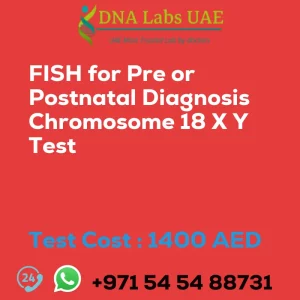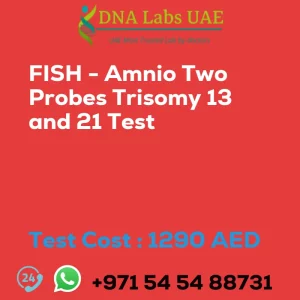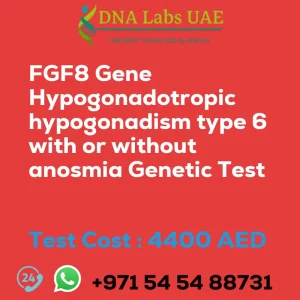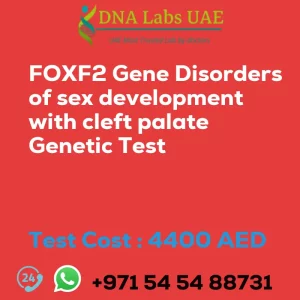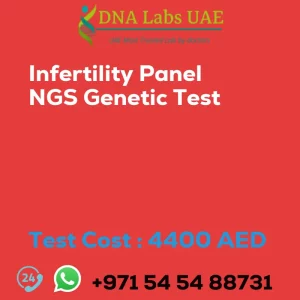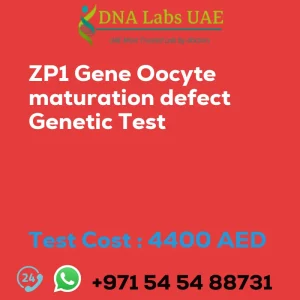FISH – TRISOMY 18 EDWARD SYNDROME Test
Test Name: FISH – TRISOMY 18 EDWARD SYNDROME Test
Components: Chromosome & FISH analysis Requisition Form (Form 17) & Prenatal Genetic Testing Consent Form (Form 18)
Price: 1200.0 AED
Sample Condition: Varies (amniocentesis, chorionic villus sampling, or blood sample)
Report Delivery: 1 week
Method: FISH (Fluorescence In Situ Hybridization)
Test Type: Gynecology
Doctor: Gynecologist
Test Department: Cytogenetics
Pre Test Information: Duly filled Chromosome & FISH analysis Requisition Form (Form 17) & Prenatal Genetic Testing Consent Form (Form 18) is mandatory.
What is Trisomy 18 Edward Syndrome?
Trisomy 18, also known as Edwards syndrome, is a genetic disorder caused by the presence of an extra copy of chromosome 18 in some or all of the body’s cells. This condition is characterized by multiple abnormalities and can affect various organs and systems in the body.
About the FISH Test
The FISH (Fluorescence In Situ Hybridization) test is a molecular cytogenetic technique that uses fluorescent probes to detect specific DNA sequences on chromosomes. In the case of trisomy 18/Edward syndrome, the FISH test can identify the presence of an extra copy of chromosome 18 in cells.
During the FISH test, cells from a sample, usually obtained through amniocentesis or chorionic villus sampling (CVS) in prenatal testing or through a blood sample in postnatal testing, are cultured and then fixed on a slide. The fluorescent probes, specifically designed to bind to chromosome 18, are applied to the slide. If there is an extra copy of chromosome 18, the probes will bind to the additional chromosome, and the presence of the extra chromosome can be visualized under a fluorescent microscope.
Benefits of the FISH Test
The FISH test for trisomy 18/Edward syndrome is a highly accurate and reliable method for diagnosing this condition. It can be performed relatively quickly, providing results within a few days. The test is commonly used in prenatal screening and diagnosis to assess the risk of trisomy 18 in a developing fetus. It can also be used in postnatal testing to confirm a diagnosis or to screen individuals with suspected trisomy 18.
It is important to note that the FISH test is a specific test for trisomy 18 and cannot detect other chromosomal abnormalities or genetic disorders. If other abnormalities are suspected, additional tests, such as chromosomal microarray analysis or karyotyping, may be recommended. Genetic counseling is also an essential component of the testing process to discuss the results, implications, and available options for individuals and families.
| Test Name | FISH – TRISOMY 18 EDWARD SYNDROME Test |
|---|---|
| Components | |
| Price | 1200.0 AED |
| Sample Condition | |
| Report Delivery | 1 week |
| Method | FISH |
| Test type | Gynecology |
| Doctor | Gynecologist |
| Test Department: | Cytogenetics |
| Pre Test Information | Duly filled Chromosome & FISH analysisRequisition Form (Form 17) &Prenatal Genetic Testing Consent Form (Form 18) is mandatory. |
| Test Details | Trisomy 18, also known as Edwards syndrome, is a genetic disorder caused by the presence of an extra copy of chromosome 18 in some or all of the body’s cells. This condition is characterized by multiple abnormalities and can affect various organs and systems in the body. To diagnose trisomy 18/Edward syndrome, a FISH (Fluorescence In Situ Hybridization) test can be performed. FISH is a molecular cytogenetic technique that uses fluorescent probes to detect specific DNA sequences on chromosomes. In the case of trisomy 18, the FISH test can identify the presence of an extra copy of chromosome 18 in cells. During the FISH test, cells from a sample, usually obtained through amniocentesis or chorionic villus sampling (CVS) in prenatal testing or through a blood sample in postnatal testing, are cultured and then fixed on a slide. The fluorescent probes, specifically designed to bind to chromosome 18, are applied to the slide. If there is an extra copy of chromosome 18, the probes will bind to the additional chromosome, and the presence of the extra chromosome can be visualized under a fluorescent microscope. The FISH test for trisomy 18/Edward syndrome is a highly accurate and reliable method for diagnosing this condition. It can be performed relatively quickly, providing results within a few days. The test is commonly used in prenatal screening and diagnosis to assess the risk of trisomy 18 in a developing fetus. It can also be used in postnatal testing to confirm a diagnosis or to screen individuals with suspected trisomy 18. It is important to note that the FISH test is a specific test for trisomy 18 and cannot detect other chromosomal abnormalities or genetic disorders. If other abnormalities are suspected, additional tests, such as chromosomal microarray analysis or karyotyping, may be recommended. Genetic counseling is also an essential component of the testing process to discuss the results, implications, and available options for individuals and families. |


